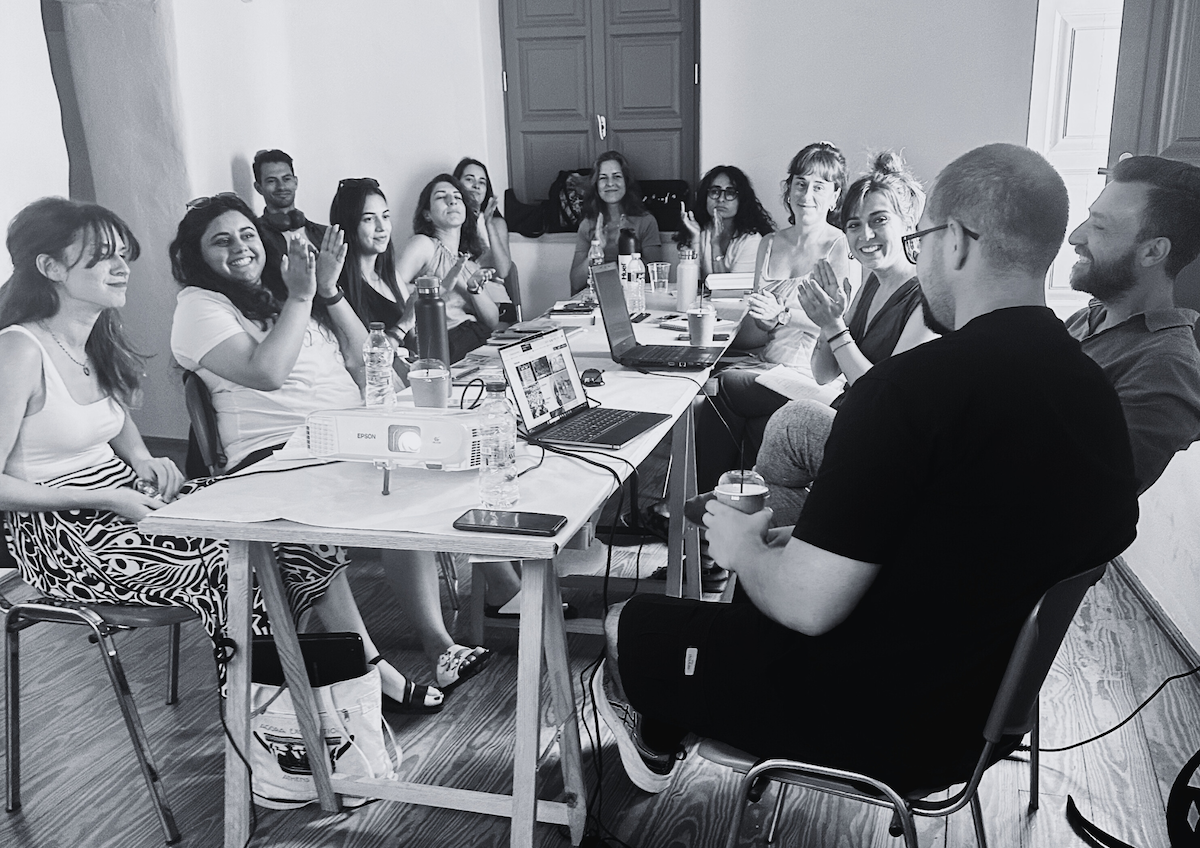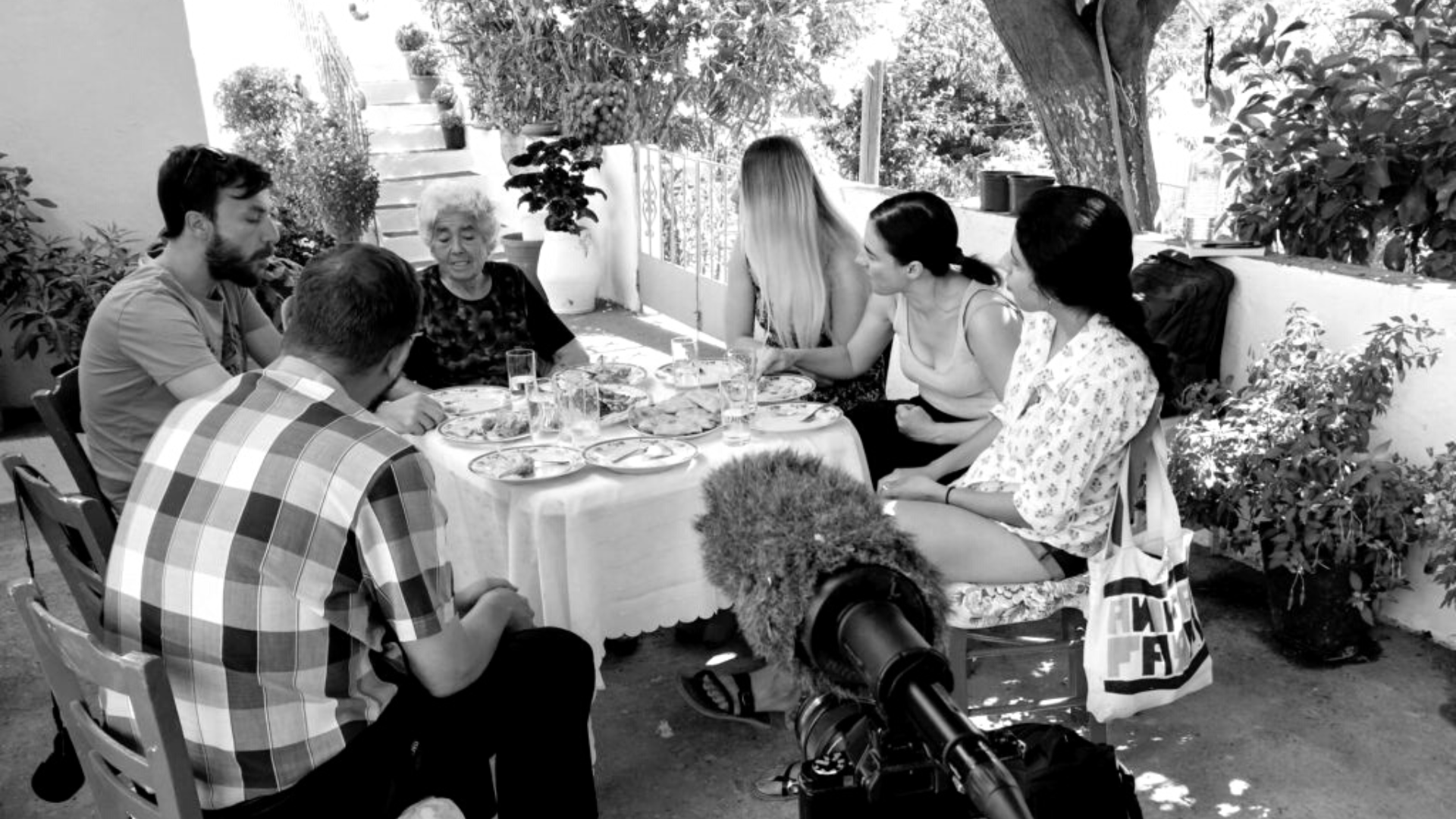Tag Archives: field school
New dates for HERITΛGE summer field schools 2025
HERITΛGE is pleased to announce new dates for our 2025 summer schools. The HERITΛGE summer schools are excellent opportunities for heritage professionals and students to develop existing knowledge and learn new skills for managing heritage. Applicants do not have to have previous experience in the particular field of study and we welcome students eager to improve their understanding in new areas of heritage. Places are limited so we recommend applying soon!
HERITΛGE is offering two programmes for 2025:
Engaging Communities in Cultural Heritage
Date: 16 June – 6 July 2025
Location: Paros, Greece (in person and online)
Language: English
Lecturers: Dr Aris Anagnostopoulos and Dr Lena Stefanou alongside guest lecturers, Dr
Evangelos Kyriakidis and Vicky Papadimitriou
This hybrid programme aims to develop a different approach to community engagement that is based on social and artistic research with community-led initiatives. Through meetings, assignments and fieldwork, students will be introduced to the principles of community engagement and learn how these can be applied in different circumstances, appropriately addressing cultural differences within the field. The duration of the course is two weeks, with five three-hour meetings. Fieldwork will take place on the island of Paros, in Greece.
I applied to this workshop to improve my fieldwork methodology, and I found it greatly helped
me develop because I was able to learn about those details that we cannot learn without
going into the field and starting to work. It has really helpful for me on how to conduct my
research questions and how to engage with the people I am interviewing. (Elif Aydin, a PhD
Candidate at Istanbul Technical University. Engaging Communities in Cultural Heritage,
2024)
Click here for more information and how to apply.
Digital Tools for Cultural Heritage Management
Date: 13 May-17 June 2024 (applications now open)
Location: Nafplio, Greece (in person and online)
Language: English
Lecturer: Dr Cornelis Stal
HERITΛGE have collaborated with HOGENT University (Belgium) to deliver three integrated and consecutive specialist courses in geomatic topic. These courses will cover GIS, Photogrammetry and image-based 3D modelling, and Terrestrial laser scanning*. Students will be provided with hands-on instruction, hands-on demos and exercises in each. Skills taught will help heritage professionals in restoration, documentation, or visualization projects specifically but can be applied to a range of other fields.
*Please note that these specialist courses can be booked individually. For those intending to just do sections of the field summer school, please contact at the email [email protected] for further information and arrangements.
I decided to take the course because I think it could be very useful in my work both for documenting for the future, using it for planning in daily work with managing heritage buildings. Also to make available on the internet for people who are not able to visit in person.(Helen Myhr Radell, Project Leader, Stiftelsen Skansen. Digital Tools for Cultural Heritage Management, 2024)
It was amazing, moving from place to place from old archaeological sites to old church photogrammetry and dealing with all this senior equipment like drones, laser scanning. Processing all this data gives you fuller information and the full picture about the process so you will then be able to it by yourself! (Khaled Hiatlih, Co-founder Heritage Roots. Digital Tools for Cultural Heritage Management, 2024)
Click here for more information and how to apply:
This course is supported by Metashape.
A new version of our archaeological ethnography and heritage summer school
By Dr. Aris Anagnostopoulos
It is almost a decade since we first had the idea to create a summer school for archaeological ethnography and heritage in the village of Gonies, in Crete. From the beginning, we had two basic ideas in our minds: one, that this would not be simply a school transferred into a remote place, but it would be a way to teach by doing research and by engaging with local populations. The other was that we had to find a way to involve locals as experts in their own heritage in the process. It was a very instructive experience for all of us, not only for its successes, but also because it made us think again about the way we work and the way we think about heritage, collaboration, and local communities in a more global way.
In this new version of our Engaging Communities in Cultural Heritage summer school, we have moved to an entirely different setting, the island of Paros, in close collaboration with a grassroots festival, the Paros Festival. Besides the change of location, the form of the summer school itself has changed towards a more hybrid form. Faced with the pandemic and lockdowns, we took the whole process online, but at the same time sought to keep a close link with the locality, even remotely.
We realized that remote work, especially with increased online presence of local places, may bring unexpected insights to the whole process of research and engagement. We already had evidence that the online presence of heritage projects increases their accountability and can serve as a research and engagement field of its own. At the same time, online work may bring together participants from a wide variety of backgrounds and contexts. This is important to the way we approach community engagement in heritage, as something that does not follow a blueprint or a set of ready-made techniques, but as an open-ended response to the needs and capacities of local places, groups, and stakeholders. At the same time, however, we have had to deal with the limitations of online work, especially structural inequalities in access and infrastructure. While we have found ways around this, such as the development of asynchronous modules that people can access in their own time, we are now geared towards creating hybrid forms for our workshops, that combine physical presence and online components, as a way to counter these inequalities.
Dr. Aris Anagnostopoulos is an Head of Community Engagment at HERITΛGE , Honorary Lecturer at University of Kent and Researcher for the Ottoman Heritages project .
Community Engagement Summer School page: https://heritagemanagement.org/training/summer-schools/engagingcommunities/


